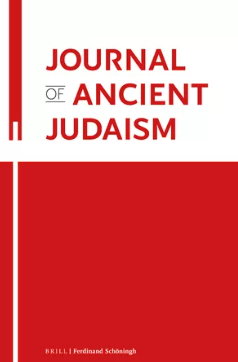https://doi.org/10.30965/21967954-bja10019
다니엘서에서 다니엘과 그의 친구들은 이국적인 환경에서 성공하기 위해 이방인의 복장을 채택한다. 이는 신체에 가해진 일종의 식민화로 이해될 수 있다. 그러나 이는 그들의 민족적 정체성에 관한 질문을 제기한다. 즉, 복장, 장신구, 식단을 포함한 외국의 신체적 관습을 수용하고 적응하면서도 유대인으로 남을 수 있는가 하는 문제이다. 본 논문은 다니엘서 1-6장에 나타난 신체적 관습을 민족성과 정체성 형성의 문제로 탐구함으로써, 이 이야기들이 이국 궁정의 신체적 식민화에 대해 다음과 같은 대담한 주장을 펼친다고 논증한다. 즉, 페르시아풍의 의복 아래에서도 다니엘과 그의 친구들은 결국 철저히 유대인으로 남아 있다는 것이다.
In the book of Daniel, Daniel and his friends all adopt foreign dress to succeed in a foreign setting. We might understand this as a kind of colonization, wrought upon bodies. But this raises questions about their ethnic identity: can one remain Jewish if adopting and adapting to foreign embodied practices, including dress, adornment, and diet? By exploring embodied practices as an issue of ethnicity and identity formation in Daniel 1–6, we will argue that these stories make a bold claim about the embodied colonization of the foreign court: underneath their Persian garb, Daniel and his friends remain thoroughly Jewish after all.







